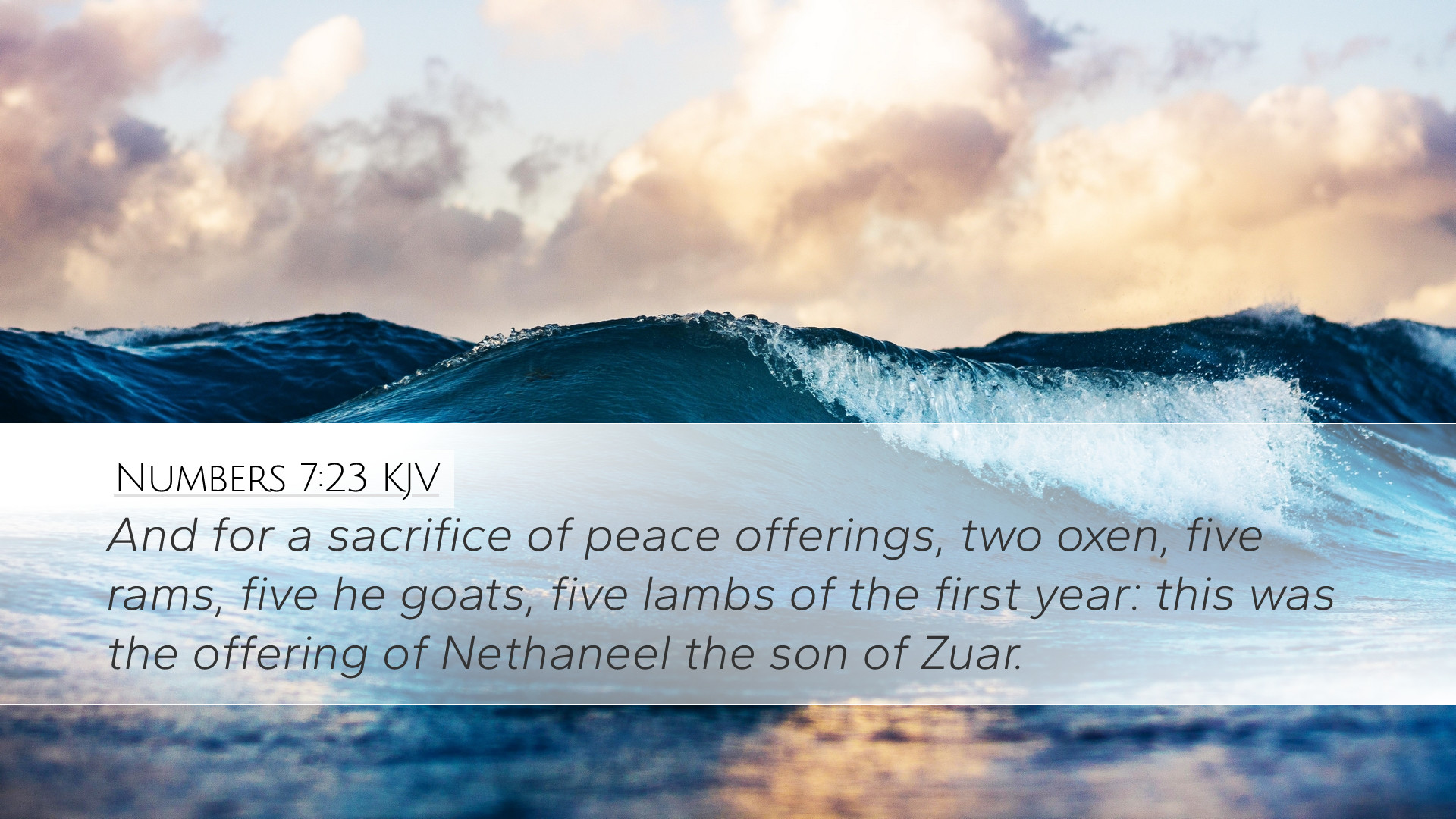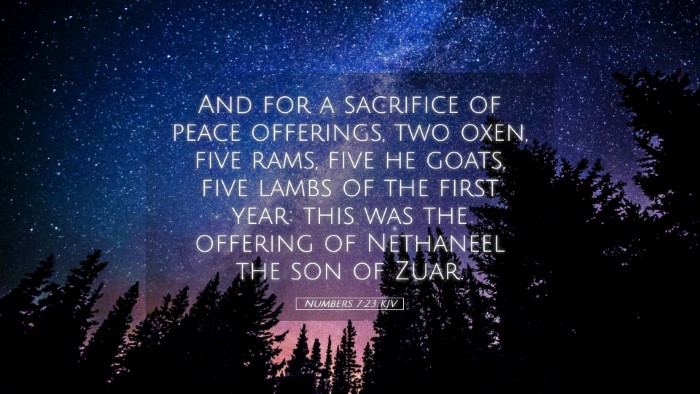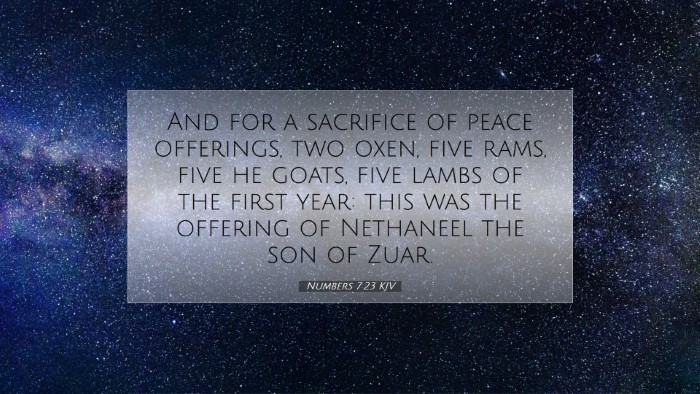Commentary on Numbers 7:23
Numbers 7:23 states: "And for sacrifice of the peace offerings, two oxen, five rams, five he-goats, and five lambs of the first year."
This verse is found within a section of the book of Numbers detailing the offerings brought by the leaders of Israel at the dedication of the altar.
Contextual Understanding
The chapter focuses extensively on the offerings presented to God, emphasizing the communal nature of worship and sacrifice among the Israelites.
Each leader of the tribes participated collectively in the dedication, showcasing their unity and shared responsibility in the worship of Yahweh.
The motif of sacrifice is integral to the Israelite community and is foundational in establishing their covenant with God.
The Significance of Peace Offerings
The peace offerings, as discussed by Matthew Henry, highlight the importance of fellowship between God and His people.
These sacrifices symbolize gratitude and the desire for communion. Henry articulates that the peace offerings were representative of reconciliation and the restoration of relationship, emphasizing the dual nature of sacrifice: both an act of worship and a means of establishing peace.
Albert Barnes expands upon this by detailing the different types of offerings presented at this time, noting that peace offerings were voluntary and expressed thankfulness for God’s blessings.
He elucidates that the offerings were not only gifts but also feasts shared with family and friends, epitomizing community and unity in worship.
Types of Offerings
- Oxen: Representing strength and service to God, the two oxen indicate a serious commitment to sacrifice, as they were valuable assets.
- Rams: The five rams signify both leadership and accountability, correlating with the leaders‘ role in Israel.
- He-Goats: These animals symbolize removal of sin, representing a desire for spiritual cleansing and purity.
- Lambs: The five lambs of the first year depict innocence and purity, indicative of the total surrender to God’s will.
Theological Implications
Adam Clarke emphasizes that these offerings are deeply rooted in the ancient Israelite understanding of covenant.
He asserts that every sacrifice brings the people closer to God, bridging the gap between divine holiness and human existence.
Each type of offering represents different aspects of the community's life and their dependence on God.
Furthermore, Clarke points out that the ritualistic nature of these offerings serves as an important reminder of the necessity of worship in the believer's life today.
Although modern believers may not participate in physical offerings, the underlying principle of sacrifice and worship remains central to the Christian faith.
Practical Applications
For pastors and theologians, the details of Numbers 7:23 present a model for understanding worship today.
It can inspire conversations about how communities express gratitude and unity in the presence of God.
It highlights that the nature of our offerings should reflect our relationship with God, characterized by gratitude and acknowledgment of His provisions.
Students and scholars might consider the implications of these sacrifices for structuring worship in their contexts and how modern sacrifices could include time, talents, and resources.
This can lead to discussions surrounding contemporary worship practices and the engagement of congregations in meaningful ways of offering to God.
Moreover, understanding the gravity of these communal sacrifices urges us to reflect on our contribution to the faith community and our cooperative relationship in God’s service.
Conclusion
Numbers 7:23 provides profound insights into the heart of worship and the nature of offerings in the Israelite community.
Through the analyses provided by commentators, we glean a greater understanding of the significance of peace offerings, the importance of community in worship, and the theological ramifications of sacrifice.
This verse invites readers to appreciate the rich tradition of worship and encourages a holistic response to God’s grace and faithfulness.


